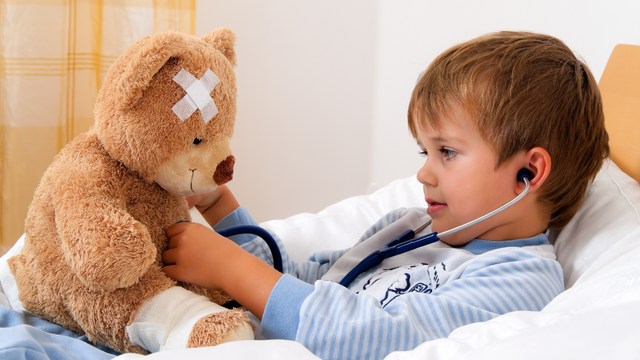 Erwin Wodicka/PhotoSpin
Erwin Wodicka/PhotoSpin
The holidays may be over but January and February bring their own special gifts. This is when the peak of cold and flu season hits, according to the Centers for Disease Control and Prevention. Though to be accurate, flu season can begin as early as October and go as late as May.
Everyone seems to either have a cough, sore throat or runny nose during the cold weather months. And that is especially true for children.
Kids are forever coughing and sniffling, with symptoms that can drag on for weeks. Moms and dads are doing everything they can to keep their family healthy this winter and help them through any illness should they get sick.
In addition to washing hands and “hugging a cough or sneeze” (coughing or sneezing into one’s elbow), experts recommend staying away from sick people and getting a yearly flu vaccine for everyone six months of age and older.
And, even with all of the prevention in the world some children (and parents too) will still get a cold or a flu this winter. When looking for ways to help relieve a child’s cough and cold symptoms this season, it is important to understand which ingredients to avoid.
Since 2007, the U.S. Food and Drug Administration deemed traditional cough medicines unsafe for children under the age of four. This change in medication labeling left many parents struggling with how to help their child as they cough and sniffle through the whole night, preventing everyone in the house from getting some much needed sleep.
No parent wants to see their child in discomfort. Here are three ways to minimize a child's sickness:
1) Push fluids.
Keeping the child well-hydrated is important, as a fever can lead to dehydration.
2) Encourage rest.
While getting a child to take it easy can be difficult, providing a soothing environment can help.
3) Give medicine as recommended.
Dosing out acetaminophen or ibuprofen for aches and pains can help a child get through some of the discomfort of being sick. Experts say to not give aspirin unless directed by a doctor.
Getting sick stinks, but seeing a child go through an illness is even worse. Being sure to take care of yourself first is probably the most important thing. If mom is sick, the whole house is in trouble.
Sources:
CDC.gov. Web. 22 January 2014. “Flu Season 201302014.”
http://www.cdc.gov/flu/about/season/flu-season-2013-2014.htm
CHOA.org. Web. 29 January 2014. "Tips for treating the flu."
http://www.choa.org/child-health-glossary/t/ti/tips-for-treating-the-flu_kh_parent
Reviewed January 30, 2014
by Michele Blacksberg RN
Edited by Jody Smith






Add a CommentComments
There are no comments yet. Be the first one and get the conversation started!